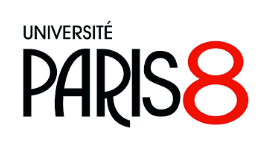19h00
Merci d'écrire à cocoa-info [at] services.cnrs.fr pour le lien zoom.
Causality and modality: plural causal instantiations in Teochew
Modal models vs. causal models: French être en train de
Bridget Copley, SFL (CNRS/Paris 8)
Copley & Roy (2015) propose to analyse the French progressive être en train de (literally `be in process of') with a doubly model denotation. Their claim is that êetd has a modal at-issue meaning with a circumstantial modal base and a stereotypical ordering source (cf. Portner 1998); and in addition, they argue, it has a modal conventional implicature with either a stereotypical or a bouletic ordering source. While this analysis gets the truth conditions and implicatures right, it fails to explain why there would be two stacked modal meanings associated with morphology that essentially locates the subject of the sentence "in the process of" some event. Moreover, there is no explanation in that analysis as to why certain parts of the meaning are at issue and others are not at issue. Here I propose that a causal model does better than a modal model at providing these explanations.
| Attachment | Size |
|---|---|
| 2023.09.13 COCOA.pdf44.84 Ko | 44.84 Ko |



